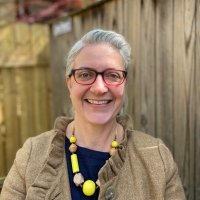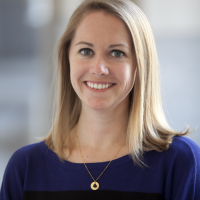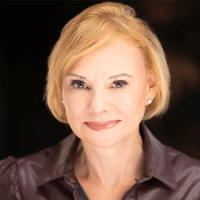The Story Behind Climate Security and What it Means for US Foreign Policy
Submit a question
Hurricanes Helene and Milton battered the southeastern US in September and October and caused a combined estimate of $300 billion in damages. These storms were only the latest example of a cascade of disasters that is expected to worsen as climate change intensifies. Yet the impacts do not stop at dollars and human lives. Threats to security and stability also will multiply as rising temperatures increase the variability of rainfall patterns and the intensity of storms.
A recent event co-hosted by the Wilson Center with the Center for Climate and Security examined the underlying dynamics of climate security and their implications for US foreign policy. Peter Schwartzstein, Wilson Center Global Fellow and environmental Journalist in Residence at the Center for Climate and Security, who was among the speakers at the event, observed that “climate change’s most debilitating and greatest impact on violence is when it is acting on other drivers of instability.”
Climate change can exacerbate regional instability by altering the availability of life-sustaining resources such as water, food, and land. And US officials are discovering that the sheer scope of climate stress can challenge US interests as well. Assistant Secretary for the Bureau of Conflict and Stabilization at the US Department of State (DoS) Anne Witkowsky noted that close to “3.6 billion people [are] living in regions susceptible to climate change, [and] more than 1 billion of those people living in regions experiencing conflict.”
Communities around the world are facing climate stressors that threaten their lives and livelihoods, compound conflict risks, and challenge the ability of governments to provide services for their citizens. Recognizing that climate change is no longer just a future threat, countries and multilateral institutions now have taken a new interest in understanding the interactions between climate, conflict, and security.
Climate Security on the Ground
Climate change’s global impact on conflict and security is not confined to any single region. But the Middle East and North Africa (MENA) and Sub-Saharan Africa (SSA) exemplify what could be called a climate security “hotspot.” The 2024 Ecological Threat Report, which tracks countries’ ecological devastation and levels of social resilience, placed 23 SSA and MENA nations in its 27 hotspot countries.
How do these challenges play out at the community level? Schwartzstein pointed out that as climate change alters rainfall and agricultural patterns, it can deepen rural-urban divides and exacerbate long-standing inequalities—thus creating an opportunity for recruitment into extremist organizations. In Iraq, he continued, “the greatest concentrations of Isis recruitment came in the peri-urban peripheries of Mosul.” Climate stress compounded costs on already struggling agricultural communities, which surrounded the relatively prosperous urban center.
The most intense impacts of climate change fall along traditional fault lines, placing the greatest burdens upon those with the least access to resources. “When we talk about climate-related security risks, it is almost always a marriage, albeit a very unhappy one, between climate stress and poor-quality governance,” added Schwartzstein. Poorer countries in regions considered climate security “hotspots” often have insufficient budgets and staff to manage the effective distribution of aid to climate-stressed areas—or even to meet basic administrative demands.
Practical challenges to governance manifest in many ways, especially in the hotspot nations. “There are huge governance challenges across the MENA region,” said Merissa Khurma, Director of the Wilson Center’s Middle East Program. Because decision-making comes from the top down with very little emphasis on local engagement in these countries, continued Khurma, communities “do not trust the government because they don’t think it will provide them with any solutions to [climate] challenges.”
Little local engagement from governments also means that communities often turn to international NGOs for assistance. Yet, as Khurma explained, humanitarian and development assistance is often not deployed to prevent disasters. “Most of the time, unfortunately,” she observed, “[assistance arrives] when crises hit.”
Many communities do “come together” to address problems, but they suffer from workforce development problems and a widening skills gap between these regions and the West that leave them only more dependent on development assistance. In short, noted Khurma, “it’s a conducive environment for more [climate-related] conflict.”
Adapting Institutions to Climate Change
As our understanding of climate change’s effects on conflict, food and water security, migration, and livelihoods deepens, it becomes increasingly vital to collaborate with agencies and partners that may not have traditionally taken the lead on climate issues. Indeed, the rate of climate change is outpacing our ability to adapt, making such collaboration essential.
Sherri Goodman, Senior Fellow at the Wilson Center’s Polar Institute and Environmental Change and Security Program, and Senior Strategist at the Center for Climate and Security, emphasized that the development of robust resilience strategies is critical for tackling the climate crisis both domestically and globally. “Climate change knows no bounds,” she pointed out. Thus, there is a need for strategic interagency cooperation to address this multifaceted problem.
Collaboration on climate change can take many forms, including trainings and the sharing of best practices between agencies. Non-governmental organizations, such as the Center for Climate and Security, also play a role by offering education on climate literacy for various stakeholders in—or outside—government.
Goodman said that her new book, Threat Multiplier, is an attempt to “bring a lot of different threads together and put you in the room where some of these decisions [on climate security] have happened over the course of several decades.” It surveys how the Department of Defense (DoD) began its own internal adaptation to climate security challenges. Over time, the DoD began to approach climate security not through some “legal requirement,” she explains, but because it began to see climate change impacting the Department’s core mission: “to provide the military forces needed to deter war and ensure our nation’s security.”
Witkowsky echoed Goodman’s emphasis on the importance of interagency cooperation, including the importance of integrating climate security considerations into key policy tools such as the Global Fragility Act.
Yet it is important to ensure that responses to short-term crises do not hinder the development of proactive and strategic long-term approaches to climate security. Witkowsky noted that such approaches include the recently released White House Climate Resilience and Security Framework, the President’s Emergency Plan for Adaptation and Resilience (PREPARE), and the forthcoming Department of State internal climate security strategy—all of which help build the necessary institutional muscle to take on the climate challenge.
While building institutional and societal resilience to the effects of climate change, Khurma also observed that it is important that we engage the perspective of local communities on the frontlines of the climate crisis.
Where Do We Go From Here?
Climate security encompasses a set of highly complex and multidisciplinary issues that will require a suite of innovative solutions. And while the scale of the problem may appear both daunting and overwhelming, there are many possible ways to move the needle forward.
Building public understanding of climate security is essential. Schwartzstein said that there is often “no smoking gun” that perfectly illuminates all of the complex dynamics between climate change and security. He argued that in-depth journalism and storytelling on climate security are crucial not only to reveal the many ways in which climate change amplifies humanitarian crises and serves as a driver of conflict over natural resources, revealing its role in more ‘traditional’ hard security threats.
Goodman agreed that there is a desperate need for more journalists who can connect the dots and tell the climate security story.
Now underway, COP29 in Baku, Azerbaijan, also provides an opportunity to make progress on global climate security. The New Collective Quantified Goal on Climate Finance (NCQG) provides a pathway for developed countries to “provide and mobilize” finance beyond the $100 billion annual target set in 2009 to help meet the growing climate vulnerabilities of developing countries.
Witkowsky pointed out that COPs also offer an unparalleled chance to forge new partnerships around climate security challenges. Yet they often do not arrive at answers to urgent challenges, such as the way that last year’s COP28 declaration on Relief, Recovery, and Peace left questions about how it will be implemented.
The story behind climate security may be complex, even as the acute effects of climate stress close in palpably on communities around the world. Yet as Schwartzstein put it, “it’s really meaningful global climate action alone that is the way to deal with [climate security threats].”
Written by Noah Fritzhand and Angus Soderberg, edited by Richard Byrne.
Speaker

Moderator

Panelists

Author, Threat Multiplier: Climate, Military Leadership & the Fight for Global Security.


Environmental Journalist
Hosted By

Environmental Change and Security Program
The Environmental Change and Security Program (ECSP) explores the connections between environmental change, health, and population dynamics and their links to conflict, human insecurity, and foreign policy. Read more


Africa Program
The Africa Program works to address the most critical issues facing Africa and US-Africa relations, build mutually beneficial US-Africa relations, and enhance knowledge and understanding about Africa in the United States. The Program achieves its mission through in-depth research and analyses, public discussion, working groups, and briefings that bring together policymakers, practitioners, and subject matter experts to analyze and offer practical options for tackling key challenges in Africa and in US-Africa relations. Read more


Middle East Program
The Wilson Center’s Middle East Program serves as a crucial resource for the policymaking community and beyond, providing analyses and research that helps inform US foreign policymaking, stimulates public debate, and expands knowledge about issues in the wider Middle East and North Africa (MENA) region. Read more


Polar Institute
Since its inception in 2017, the Polar Institute has become a premier forum for discussion and policy analysis of Arctic and Antarctic issues, and is known in Washington, DC and elsewhere as the Arctic Public Square. The Institute holistically studies the central policy issues facing these regions—with an emphasis on Arctic governance, climate change, economic development, scientific research, security, and Indigenous communities—and communicates trusted analysis to policymakers and other stakeholders. Read more



